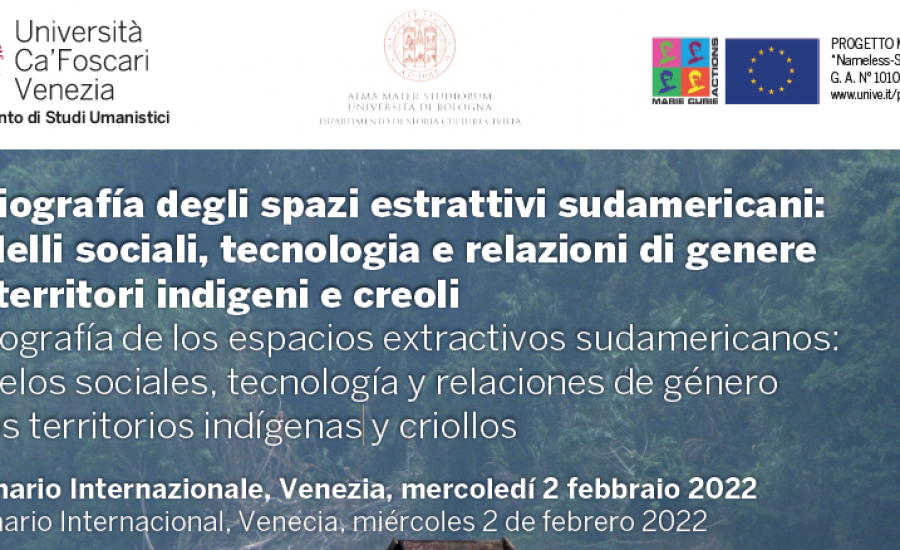HISTAGRA participates in a Seminar organized by the Università Ca' Foscari

HISTAGRA participates in the Seminar organized by the Università Ca' Foscari: Radiography of South American extractive spaces: social models, technology and gender relations in indigenous and Creole territories
HISTAGRA postdoctoral researcher Carlos Benitez Trinidad participates in the Seminar with the report: From the silvicoli to cittadini: his indigenist project Serviço de Proteção a los Indios nella Amazzonia
The Seminar, organized by the Università Ca' Foscari of Venice, is held from February 1 to 3
About the seminar:
The study of the mining dynamics in the South American lowlands generated during the last years a wide range of seminars, reflections and publications. However, the many traces and imaginations that the extraction of rubber in the Amazon catchment area, the forestry companies of the Chaco or the sugar factories of northern Argentina left in the indigenous and creole landscapes of the 19th and 20th centuries. be explored. In the name of order and progress, the configuration of these extractive scenarios - often ignored, unknown or located on the margin of "civilization" - influenced the formation of #national identities and borders, in migratory and urban processes, in armed conflicts, in the formation of national borders. missionary projects and finally on the link with the international buyers. It also played an essential role in redefining relations between indigenous, Creole and migrant communities. Given these premises, we propose, therefore, to suggest answers to the following questions: What are the representations and imaginaries supported by national governments, regional authorities, the armed forces, religious missions or the mining industry itself? What technological, health and political transformations did this process entail? What influence did it have on the internal and inter-regional ethnic distribution? Through a diachronic reading, this workshop aims to suggest a series of interdisciplinary responses to these questions.